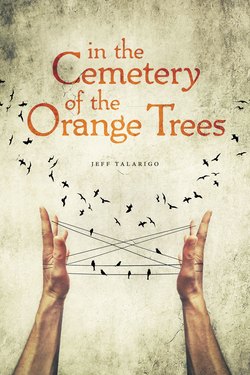Читать книгу In the Cemetery of the Orange Trees - Jeff Talarigo - Страница 20
На сайте Литреса книга снята с продажи.
ОглавлениеHe marvels at, while at the same time is saddened by, how adept the children are at recognizing the sounds. How they tell him that the shot just heard was from a tear gas gun rather than a Kalashnikov or that was the sound of a bomb rather than an exploding Molotov cocktail. It is the children in the house who are the first to hear an army patrol wending its way up the night street. Or, at least, they are first to admit to hearing it.
The gurgle of falafel grease wakes him and he goes a couple of houses down the street. The morning already speaks of heat and he studies Aysa scooping ball after ball of the bright green chickpea batter into the pond of grease, watches them dance and brown and crisp.
In a short while, Aysa’s little sister steps outside and sees the American and then disappears into an alleyway; before the falafel are cool enough to bite into, a half dozen children are there. Several of them exchange a coin for some breakfast falafel, others just come to watch the stranger, who has now become a familiar sight in the morning and early evening streets. Aysa hands him a falafel and, as always, refuses the coin.
Some take lemons each day, others a small bottle of cheap cologne and a rag, the grandmother, Fatima, hands the American half an onion to help combat the scorch of the tear gas.
He loves the nights, rare that they are, when he, and a few others, slip on black jackets and vanish into the lightless camp. They avoid the main streets and keep tight to either side of the alleyway walls, straddling the trough of open sewage. Once in a while they pass someone and whispered greetings are exchanged, as well as whether or not any soldiers have been seen.
One night, as they near their house in block number four, a jeep can be heard, and it is not far away. Then the beam of a spotlight startles the main street; the men separate and find different places along the alley walls, getting as close as possible. With his face against the cement blocks, he feels the geography of their pockmarks, and how, as if in defiance of curfew, they have held the sun’s warmth in them. As the searchlight stalks the streets and the patrol passes, he draws even closer to the wall, realizing that it is here, and only here, where one can find a moment of solitude in this place.
